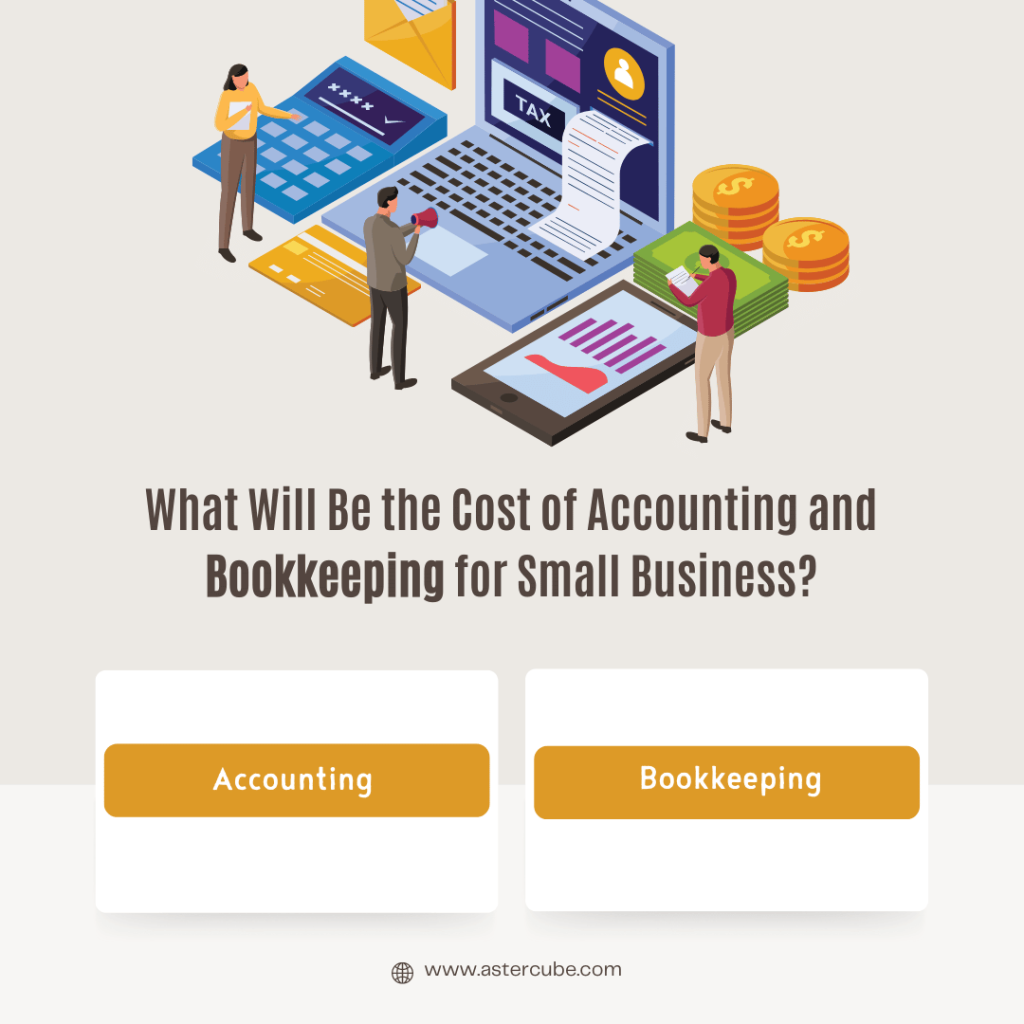
- The Difference Between Accounting and Bookkeeping?
- Accounting
- Bookkeeping
- The Hourly Costs of Accounting and Bookkeeping
This article provides information on the cost of accounting and bookkeeping services, including the traditional hourly billing method and Astercube’s pricing strategy. It helps readers understand what to expect when hiring a bookkeeper or accountant.
What is Accounting?
Accounting is a broader term than bookkeeping, and it involves the process of recording, summarizing, analyzing, and reporting financial information to provide insights into the financial health of an organization. It encompasses the activities of bookkeeping but goes beyond it by providing a comprehensive analysis of a company’s financial performance.
Some of the key activities involved in accounting include:
- Recording financial transactions: This involves keeping track of all financial transactions that occur within the business, such as sales, purchases, receipts, and payments.
- Analyzing financial transactions: Accounting involves analyzing financial transactions to determine their impact on the financial health of the business.
- Preparing financial statements: Accountants prepare financial statements, such as the balance sheet, income statement, and cash flow statement, which provide a summary of the business’s financial performance.
- Analyzing financial statements: Accountants analyze financial statements to identify trends and patterns in the business’s financial performance, and to identify areas that need improvement.
- Budgeting and forecasting: Accountants are responsible for developing budgets and financial forecasts to help the business plan for future growth.
- Tax planning and compliance: Accountants help businesses comply with tax laws and regulations and plan their tax strategies to minimize tax liability.
- Auditing: Accountants may also be involved in auditing the financial statements of the business to ensure their accuracy and compliance with accounting standards.
Overall, accounting is a critical activity for any business to maintain accurate financial records, gain insights into its financial performance, and make informed decisions about its future.
What is Bookkeeping?
Bookkeeping is the process of recording and maintaining the financial transactions of a business or organization. It involves recording and classifying financial transactions such as purchases, sales, receipts, and payments into the appropriate accounting categories, such as assets, liabilities, equity, revenue, and expenses.
Bookkeeping is essential for any business to track its financial performance and to meet legal and regulatory requirements. Some of the activities involved in bookkeeping include:
Recording financial transactions: This involves keeping track of all the financial transactions that occur within the business, such as sales, purchases, receipts, and payments.
Categorizing transactions: Transactions are categorized into different accounts based on their nature, such as revenue accounts for income and expense accounts for expenditures.
Reconciling accounts: This involves ensuring that the balances in the accounts are accurate and match the corresponding bank or credit card statements.
Generating financial statements: Bookkeepers prepare financial statements, such as the balance sheet, income statement, and cash flow statement, which provide a summary of the business’s financial performance.
Managing accounts receivable and accounts payable: Bookkeepers keep track of the amounts owed by customers (accounts receivable) and the amounts owed to suppliers (accounts payable).
Maintaining financial records: Bookkeepers maintain accurate and up-to-date financial records, which are important for tax purposes and in case of audits.
Overall, bookkeeping is an essential activity for any business to keep track of its financial transactions, maintain accurate financial records, and comply with legal and regulatory requirements.
The Hourly Costs of Accounting and Bookkeeping
When it comes to paying for bookkeeping and accounting services, the usual and widely accepted way is to charge by the hour. Basically, the bookkeeper or accountant will keep a record of the time they spend working on your business, even if it’s just a fraction of an hour (like 6 minutes!). Then they’ll tally up all that time and multiply it by their hourly rate to determine the cost of their services. And just like that, you have a bill! So, whenever your bookkeeper or accountant picks up your call, writes back to your email, or does any work related to your file, the clock starts ticking. This is how they determine the amount of time they spend on your business and charge you accordingly.
Based on the current state of the market, hourly rates are not standardized and can fluctuate depending on a variety of factors:
When it comes to Accounting work done by a Certified Public Accountant (CPA), the hourly rates can vary quite a bit. You can expect to see prices ranging from $150 per hour to as much as $450 per hour.
If you’re looking to hire a Bookkeeper, you can expect to pay somewhere between $30 per hour and $90 per hour, depending on the specific bookkeeper and the services you need.
Conclusion
while bookkeeping and accounting are closely related and often used interchangeably, they serve different purposes in managing a business’s financial information. Bookkeeping focuses on recording and organizing financial transactions, while accounting involves interpreting and analyzing that information to provide insights and guidance for decision-making. Both functions are crucial for maintaining accurate financial records and ensuring the financial health of a business. Understanding the distinction between bookkeeping and accounting can help business owners and managers better manage their finances and make informed decisions about their operations.

